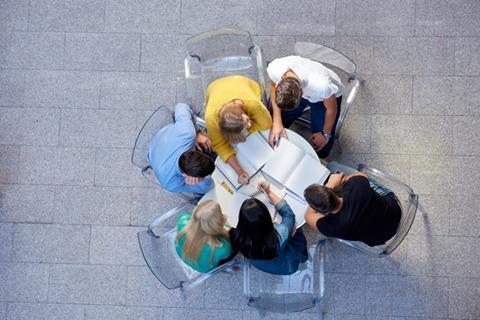Facilitating peer group learning
Researchers are increasingly investigating the factors that influence students’ discussions during group work to better understand the learning that occurs during such activities. In this study, a team of researchers led by Regina Frey analysed students’ conversations during peer-led team learning (PLTL) sessions to shed light on the features of their discourse that contributed to the most effective learning.

The study took place at a medium-sized selective university in the US midwest. The researchers collected data from 15 out of a total of 40 PLTL groups involving students on a general chemistry course. During PLTL sessions, students work in groups of 6–8, facilitated by a peer leader who has previously achieved a high grade in the class and works under the supervision of the instructor. PLTL develops problem-solving skills and provides an active-learning environment, with peer leaders responsible for ensuring that collaborative learning takes place with equal participation across the group.
The data collection involved recording 60 hours of video footage of PLTL groups working in three different sessions over the course of a term. Conversations were transcribed and coded, allowing the analysis of the language used by students during the sessions. It was found that approximately half of the conversation involved instructive talk, ie directly related to science/chemistry, with the rest being regulative talk, ie supporting the group dynamic and collaborative processes.
Analysis of instructional communication showed students often engaged in joint decision making involving questioning and explaining, and building on each other’s ideas. Interestingly, it was found that conversations infrequently featured open questioning, deeper conceptual discussions and self-monitoring, which are all considered to be benefits of peer learning.
As such, the authors suggest that collaborative-learning activities be designed that prompt students to become aware of their learning and to engage them in questioning and explaining phenomena at a deeper conceptual level. They suggest research is needed into the ways peer leaders can be trained to facilitate groups more effectively, to emphasise the importance of open questions and metacognitive awareness during PLTL sessions. The social and communicative skills that students develop through these kinds of activities are clearly beneficial in preparing students for collaborative working in professional settings, which is interesting to those designing degree programmes for the future.
References
M D Repice et al, Chem. Educ. Res. Pract., 2016, 17, DOI: 10.1039/c5rp00154d









No comments yet